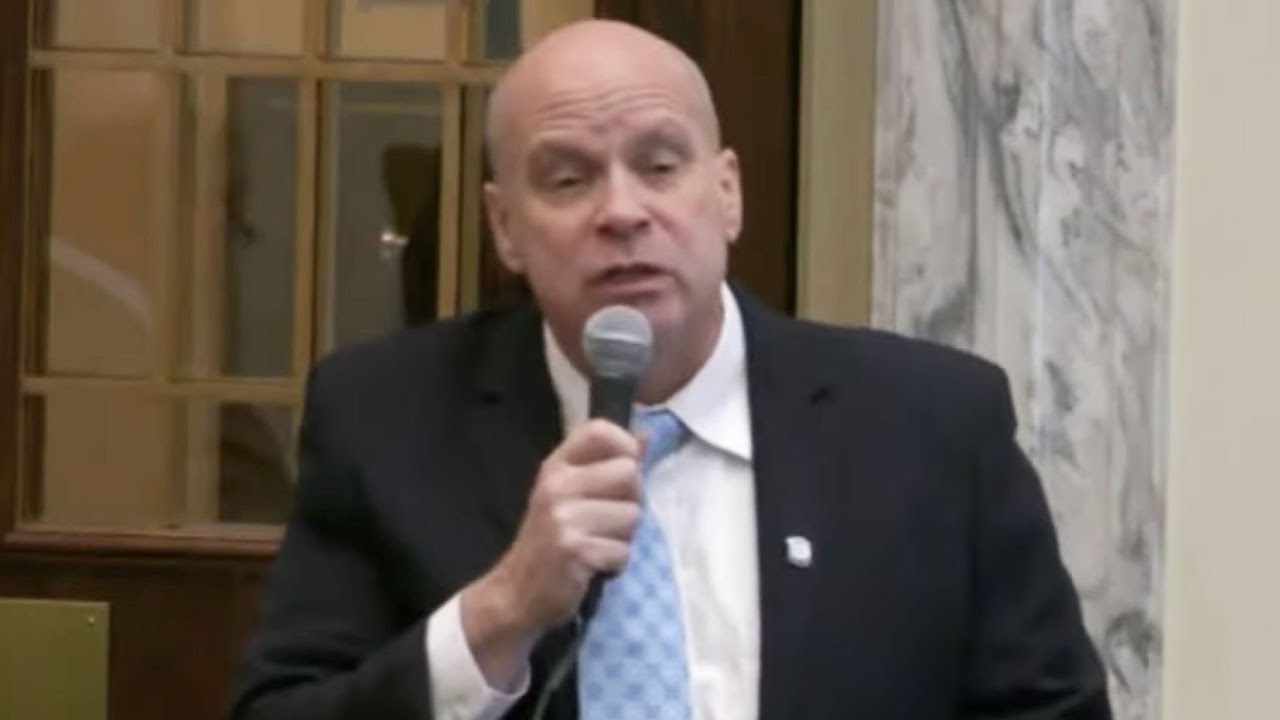Republicans: We're Okay With Teachers Hitting Special Needs Children
Unleash Your Creative Genius with MuseMind: Your AI-Powered Content Creation Copilot. Try now! 🚀
Protecting Children or Ignoring Their Rights?
In the realm of disciplining children, there has always been a divide in opinions. Some argue that corporal punishment, such as spanking or hitting, is an effective method to teach children right from wrong. Others contend that this method is archaic, ineffective, and potentially harmful to a child's well-being. In the case of special needs children, the debate becomes even more contentious.
Recently, Republican State Representative Jim Olsen from Oklahoma invoked the Old Testament in defense of corporal punishment on special needs children. He cited Proverbs 29: "The rod and reproof give wisdom, but a child left to himself bringest his mother to shame." While some may question whether the Old Testament can be used as a credible authority in this context, Olsen's argument shed light on the ongoing debate surrounding corporal punishment.
This debate gained further traction in Oklahoma when a bill was introduced to ban the use of corporal punishment specifically on special needs children in schools. Supporters of the bill argued that physical discipline can be detrimental to these children's development. However, not all Republicans agreed, leading to a divided vote on the matter.
A Closer Look at the Bill and its Supporters
The bill to ban corporal punishment on special needs children was introduced by Republicans, highlighting that not all party members support such disciplinary measures. Some Republican members voted in favor of the bill, recognizing the need to protect vulnerable students from potentially harmful practices.
It is important to note that this bill did not aim to restrict parents' disciplinary actions or ban corporal punishment for all students. Its focus was solely on special needs children within the school system. The bill defined corporal punishment as the deliberate infliction of physical pain through hitting, paddling, spanking, slapping, or any form of physical force used for disciplinary purposes.
Where are the Parents?
One cannot help but question where parents stand on the issue of corporal punishment in schools. In an era where parents passionately argue about children's books in libraries, one would assume they would fiercely oppose any form of physical harm inflicted upon their children. Yet, their silence on the topic is deafening.
Making matters worse, the vote on the bill revealed a disheartening reality. While 45 votes were cast in support of the measure, 43 votes were against it, all coming from Republicans. This opposition from elected officials raises eyebrows and casts a spotlight on the need for further discussion and education on the matter.
Section 2: The Unsettling Arguments and Real-Life Consequences
The Disturbing Debate Continues
The video footage capturing the debate surrounding the bill provides a glimpse into the unsettling arguments against prohibiting corporal punishment on special needs children. In one exchange, a Republican questions whether it is only teachers who are restricted from using physical discipline. When the response confirms this limitation, the Republican suggests that he could beat his child if he visited the school. This line of reasoning is not only shocking but highlights a lack of empathy for the well-being of these vulnerable children.
Unfortunately, these disturbing arguments continue, sparking outrage and concerns about the moral compass of those who support corporal punishment. Allowing teachers to physically harm disabled students is not only abusive but showcases a severe lack of understanding and compassion for these children's rights and well-being.
Discrepancies between School Policies and State Law
While the school system in Oklahoma has implemented policies to prohibit corporal punishment on special needs children, these rules only exist within the school setting. The absence of state-level legislation means that those responsible for carrying out these abusive acts can slip through the cracks. This discrepancy highlights the urgency for enshrining protections for special needs children in state law.
Reports from the past two years reveal that in Oklahoma alone, 63 school districts resorted to corporal punishment on special needs children a total of 455 times. To subject these vulnerable students, who already face unique challenges, to physical pain is not only unjust but may also have long-lasting psychological effects. It is crucial to protect these children from unnecessary harm and ensure they are not left wondering why such punishment is being inflicted upon them.
Section 3: A National Issue - Disproportionate Treatment of Special Needs Children
The Broader Picture
Sadly, the issue of corporal punishment on special needs children extends beyond Oklahoma. Recent data from the U.S. Department of Education reveals an alarming trend. Although students with disabilities represented approximately 13% of total enrollment nationwide, they accounted for 16.5% of students subjected to corporal punishment. This disproportionate treatment highlights a systemic problem that extends far beyond state boundaries.
It is crucial that society acknowledges and confronts this issue head-on. To subject vulnerable children to physical harm only perpetuates a cycle of abuse and neglect. We must do better as a society to protect and support all children, regardless of their abilities or disabilities.
Conclusion
The debate surrounding the use of corporal punishment on special needs children challenges us to question our ethics and priorities as a society. While some elected officials persist in defending such practices, it is important to recognize the harm they cause and prioritize the well-being and rights of all children.
Silence and indifference only perpetuate a system that allows for the abuse of vulnerable children. Each of us has a responsibility to advocate for change and confront this issue head-on. It is through awareness, education, and compassionate action that we can work towards a future where no child is subjected to unnecessary harm or pain.
